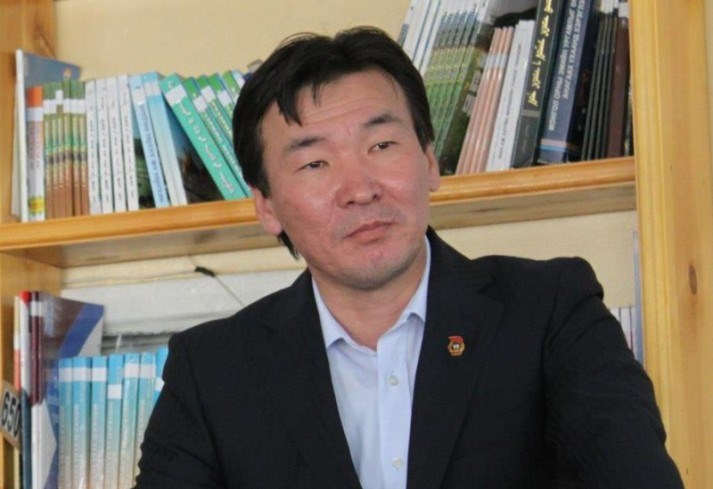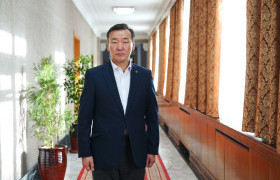
S.Ganbaatar: There can’t be a righteous society if a group of people own and plunder public wealth
The following is an interview with MP S.Ganbaatar about present issues.
-In connection to inflation, the government increased the minimum wage and pension by thirty percent. In reality, an addition of 20 thousand MNT is barely enough. As days pass by and the purchasing capacity of citizens degrades, is it alright for you to sit and claim that you’ve increased benefits?
-It’s a huge toll on citizens, especially for those who have small salaries, because the prices of products and goods increase from day to day. This is heavily affecting women and citizens receiving pensions. One section of the government shouldn’t handle this problem through public relations while another section complains. In order to resolve this, trilateral negotiations should be done soon.
In other words, the government sets prices, and representatives of business entities and normal citizens doing labor – who may face losses due to the increase in product prices – should discuss state agreements of the Trade Union Committee. While one group says the prices of goods hasn’t increased, another claims that their original salary of 300 thousand MNT has become 200 thousand MNT.
The state’s trilateral negotiations would examine this issue, and if necessary, harsh comments would be said and the issue discussed according to calculations and combined research. Unfortunately, this negotiation isn’t taking place. It’s important that a trilateral negotiation is organized urgently and publicly, in front of citizens. I used to do trilateral negotiations in my six years as the Head of the Mongolian Trade Union. This is a mechanism for the fair distribution of goods. In professional terms, it is a salary, pension, allowance and tax mechanism to righteously allot goods produced by society back to society.
-Does that mean current allotment principles aren’t righteous?
-Exactly. The price of goods has increased by 30 percent and the increases are going into the pockets of a handful of people. There’s an issue of increased rates not going to workers. Starting trilateral negotiation as soon as possible is the main solution for the present situation.
-The Mongolian Trade Union has repeatedly demanded trilateral negotiations. They still haven’t been organized. Is it because they are making plans poorly, or is the government approaching the matter irresponsibly?
-The Trade Union is setting requirements very well. The government must accept these requirements. Representatives of employing businessmen, the Trade Union and governors should gather together to discuss the exact percentage of increases in prices, how to include the private sector in salary issues, and hear the arguments of the minister in charge of minimum wage, pension and allowances for people associated with the government.
Now, we should approach the matter by reporting that they mustn’t use this opportunity to increase the prices of goods and products, or else their licenses will be confiscated. Businessmen are required to get license approval to do business. They aren’t people who take sides. By holding three-way discussions and signing agreements, laws are approved. The most important thing is to implement this law.
-Not holding negotiations is a violation of the law, right?
Mongolia is a sacrificial lamb for the liberal political view that shows how wealthy countries can stop the economic growth of poor countries, named neo-liberalism and originating from America.
-In situations when the exchange rate of the MNT has fallen due to increases in price, urgently holding meetings and making decisions is stated in the law. If the law is violated, it’s required that those affected go on strikes and do demonstrations. This is included in the law. Therefore, all of these things should be done in the near future. It’s also my duty to report on these methods. In my case, instead of leading the Trade Union and setting requirements for the government, my work is to demand urgent operations for this mechanism.
-The government announced that they increased minimum wage and pensions in connection to inflation and will not increase them again. What do you think of this?
-If the state’s trilateral negotiations begin, it’s decided that calculations and research will be shown to give evidence and rationale for the reasons for the presently difficult situation. It doesn’t mean that salaries, pensions and allowances will increase whenever there’s a negotiation. The most important thing is to understand each other. Only markets running without any price management is the biggest problem. It’s stated in article 5.4 of the Constitutional Law that the government will manage the economy. Mongolia has an economy with government management. The fact that all of this isn’t being implemented means that the mechanisms of these negotiations aren’t functioning properly.
- What has to be resolved before the negotiations can be settled?
-The government needs to be intellectual. They can’t sit by and watch trade. The owners need to meet their social responsibilities. The government has losses. Instead of discussing losses, they need to analyze and evaluate them and operate mechanisms to come up with solutions that work. Without the operating mechanisms of trilateral negotiations and only disparaging others, they are becoming people unaware of values. All I can say is to begin trilateral negotiations urgently.
-You’re one of the people who protests for modification of the Oyu Tolgoi contract. You published a book that proposes things that need to be done for a country to be a country. In other words, you’ve found a new solution. What is that solution?
-First, Mongolians are on the verge of losing their independence. The present situation is as if Mongolia has already lost it. What this means is that the World Bank, International Monetary Fund and banks and funding organizations now make decisions for Mongolia in the name of counsel and showing support. In particular, decisions connected to mining resources are sometimes made by Mongolian ministers with the influence of foreign councils and advocacy organizations. This is dangerous.
Secondly, there must be national resource debate. Mongolian resources are becoming ownerless. The issues of why the nation’s people can’t profit from owning their national resources need to rise up.
Thirdly, Mongolia is a sacrificial lamb for the liberal political view that shows how wealthy countries can stop the economic growth of poor countries, named neo-liberalism and originating from America.
They started wars and made factions fight each other in countries rich in resources and ended up with their property, or implemented programs where properties were managed by new owners. In other words, wealthy foreigners made normal citizens suffer losses through crafty measures. Mongolia has become its victim now.
In addition, five methodologies are included. A solution to get out of this is evident in the example of Norway. It’s stated that no single group of people, a few elites connected to politicians, have the right to control the society of Norway, its people and mining resources. This is why Mongolia needs a righteous society. We aren’t becoming a righteous society because a small group of people are possessing and plundering public resources.
-It seems that by publishing this book, you may face a considerable amount of opposition and criticism?
-I explained and bravely wrote about all of this, and what I needed to do in the future, in my book. The Mongolian state is filled with children trained by neo-liberalism in America. They will noisily rise up. Very strong and deadly publicists will lead campaigns to criticize me in a frightening manner just for writing this book. Writing is my duty. If an MP doesn’t do this then who else will? An MP who has gained the trust of many citizens has an obligation to write about what sort of state Mongolian citizens want and methodologies for how to reach it. This is why I wrote this book.
























